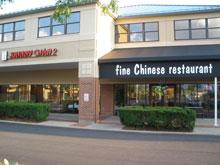
Rabbi Joshua Plaut is the author of A Kosher Christmas: ’Tis the Season To Be Jewish. In his book, there is a chapter entitled: “We eat Chinese food on Christmas.” During an interview on National Public Radio on December 25, 2017, NPR host Robert Siegel, himself Jewish, asked Rabbi Plaut why it was that Jewish diners-out chose Chinese food for December 25th dining. The answer may surprise you.
The habit of Jews eating Chinese food in the United States, on Christmas or otherwise, goes back to the late 1800s, and specifically to the ghetto areas of New York City at that time. One such area was lower Manhattan. It was there that both newly arrived Chinese and Jewish immigrant families of that era were shunted by a social order that exercised its contempt for both ethnic groups, wanting to keep both away from “white” neighborhoods. Proximity in lower Manhattan created a social dynamic that was unusual for both ethnicities: Chinese restaurateurs in need of patrons welcomed Jews, and Jews wanting to eat out felt accepted and safe in Chinese eateries. A match made in Manhattan, if not in heaven.
So prevalent were Jewish patrons at Chinese restaurants in those days that aspersions were cast in 1899 by American Jewish Journal, a weekly Big Apple publication of the time. The paper criticized Jews for eating at non-kosher restaurants, and particularly for eating at the area’s Chinese restaurants. The Journal’s stinging rebuke of Jews “flocking” to these non-kosher restaurants did not change the behavior, however.
As for seeking out Chinese food on Christmas Eve and Day, that tradition more likely may be traced to 1935, according to Plaut. He cites the New York Times having written about a man named Eng Shee Chuck, who brought a gift of chow mein to the Jewish Children’s Home in Newark, NJ on Christmas Day of that year. The event is the first in which Jews and Chinese food are linked as a Christmas happening, according to Plaut.
Plaut writes in the above-mentioned chapter that by the 1950s, the allure of Chinese food on Christmas Day had become the “shtick” of Jewish comedy. Eating Chinese on the Christian holiday was mentioned in TV skits by Alan King and Buddy Hackett. Sid Caesar joked about it on the Caesar Comedy Hour. Even Philip Roth got into the act in Portnoy’s Complaint, saying that Chinese restaurant owners thought that Yiddish-inflected speech was the King’s English.
So, tradition! Now, what about Johnny Chan 2? First, it’s a Chinese eatery that has been voted by Chinese Restaurant News as one of the 100 best such ethnic eateries in the United States. That’s high praise, considering there are some 40,000 Chinese restaurants nationwide. But pedigree goes only so far. I love the food! Frank Shi, owner/operator/often chef, stakes his reputation and livelihood on freshness. He said this: “People come here for meal, they say: ‘Oh, very good; everything fresh.’ They like taste. We make by hand, all sauces. Our food is all fresh and high quality.” We agree!

Some of my favorites may be a little off the beaten path. I love the eggplant Yu Hsiang and the spicy green beans, for example. Both are vegetarian. Also, among protein dishes, perhaps the Mongolian beef is my favorite. Consider the eggplant offering, which is an outstanding dish that tastes every bit as good as it looks. For starters, the eggplant is deep-fried in the wok, and then added to a stir-fry of red peppers, bamboo shoots, water chestnuts and wood ears. The stir fry then is flavored with a wonderfully spicy house-made garlic sauce, which elevates this dish, in my view. The house-made garlic sauce is special, to my way of thinking. It’s fresh and zesty, making the dish mouthwatering. For vegetarians and even those who are not, the dish has both a flavor profile and texture appeal that is outstanding. Sometimes vegetarian dishes can be bland. Not Yu Hsiang eggplant! I’m betting that if you like mildly spicy, high-flavor dishes with outstanding texture, you’ll love this one.

The protein entrée on my sweet-spot list is Mongolian beef, a dish that features simple ingredients, but items packed with complementary taste notes that are perfect with the stir-fried protein of the recipe. According to Shi, the beef is stir-fried with onions and scallions in a light and tasty sauce. That’s it. And that is just perfectly enough. For me, Mongolian beef checks a lot of boxes. The flavors are prominent and appealing to me. For whatever reason, scallions and slivers of onions done in the wok produce an intensity of flavor that is remarkable. Mix those flavors with beef and the tasty trio is a winner. Mongolian beef is one dish that stands out among Chinese entrée items simply because of its intense flavor profile. The aroma alone will get you, I’ll wager.
See you at Johnny Chan 2!



